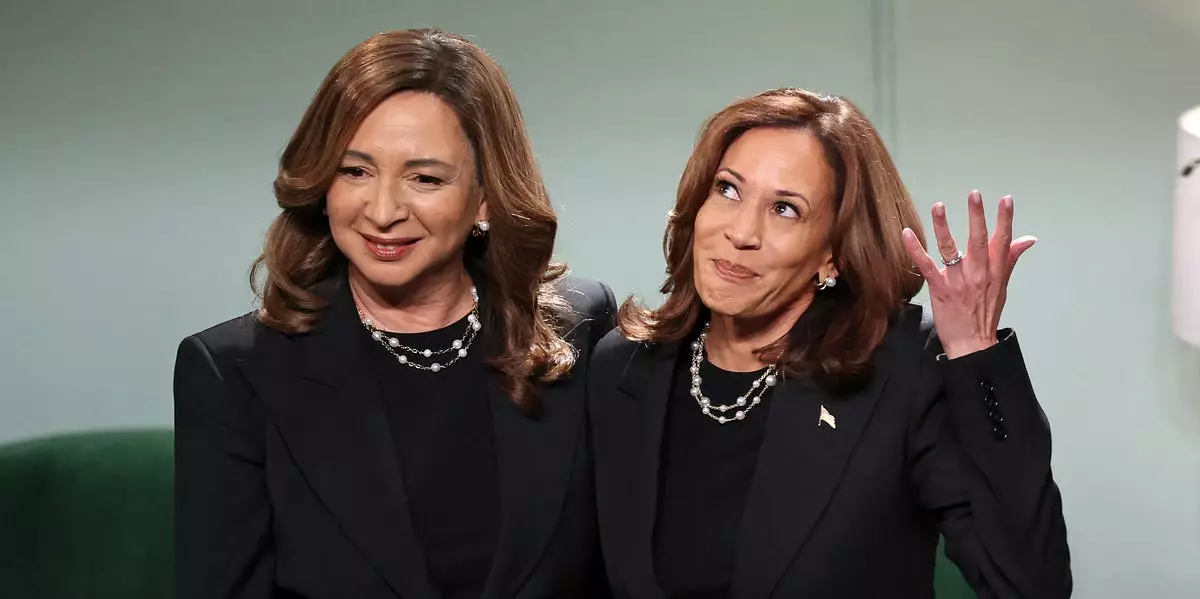In a delightful turn of events, Vice President Kamala Harris graced the stage of Saturday Night Live (SNL) last Saturday night, surprising audiences in a cold open that featured Maya Rudolph’s remarkable impersonation of her. The sketch humorously opened with a satirical take on then-presidential candidate Donald Trump, depicted by James Austin Johnson. Trump, trying to muster the energy for his final campaign rally, candidly expressed his fatigue to the audience, admitting, “I’m out of gas, I’m running on fumes here, folks.” This self-deprecating humor set the tone for a night of light-hearted political discourse, wherein the political landscape is turned into a canvas for laughter.
What makes this episode particularly noteworthy is the way it tackles issues of identity and representation through humor. In the sketch, Rudolph’s Harris character engages in a profound reflection on the complexities of her position as a Black, South Asian woman in politics. She yearns for someone who understands her unique struggles, stating, “Who’s been in my shoes, a Black, South Asian woman running for president?” This introspection is cleverly interrupted by the actual Vice President Harris, who appears as her own reflection. In this exchange, the sketch not only breaks the fourth wall but also emphasizes the support and solidarity found within the shared experiences of women of color in leadership roles.
The dialogue between Rudolph and Harris encapsulates messaging of empowerment and resilience. Harris assures her fictional counterpart, “You got this,” signifying a positive affirmation to women facing societal challenges. This blending of humor with an uplifting narrative lends the sketch a depth often overlooked in political satire. The joke, “You can open doors,” serves as both a literal and figurative reminder of Harris’s unique position and the broader implications of representation for marginalized communities.
Rudolph’s final lines, filled with puns and light-hearted wordplay, exemplify the merging of political satire with entertainment. From “pajam-alas” to “rom-com-ala,” the language is playful and catchy, contributing to the sketch’s charm and memorability. The consensus within this comedic space is clear: audiences are tired of political chaos and are looking for fresh narratives that resonate with their lived experiences. It’s a refreshing take that reminds us that even in the serious realm of politics, humor can serve as a unifying force.
Harris’s unexpected appearance was strategically positioned amidst a reshuffling of her campaign schedule, with the timing enhancing the sketch’s relevance. By stepping out of her conventional political engagements and into the realm of comedy, Harris showcased her versatility and ability to connect with a broader audience beyond traditional media. Not only does this approach humanize politicians, but it also reiterates the significance of cultural touchstones like SNL in shaping public discourse.
Kamala Harris’s unexpected cameo on SNL encapsulates what it means to mix politics with entertainment effectively. By blending humor with heartfelt commentary, the show managed to illuminate the struggles and triumphs of women in power, reminding audiences that laughter can indeed be a formidable tool in navigating the complexities of modern politics.

